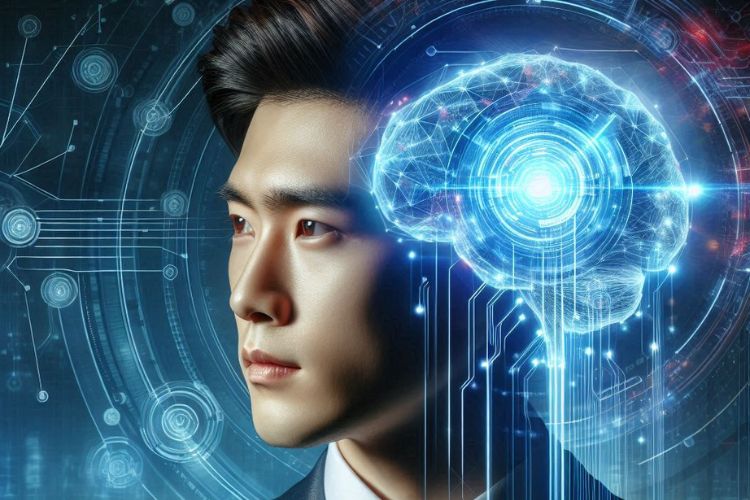Learn why Emotional Intelligence (EQ) is becoming increasingly crucial for effective leadership in the age of artificial intelligence.
As we step further into the AI era, where artificial intelligence, automation, and digital transformation redefine the workplace, the role of leaders is evolving rapidly. While technical expertise and data-driven decision-making remain crucial, they are no longer self-sufficient. The ability to navigate human emotions, communicate effectively, and foster strong interpersonal relationships has become a distinguishing factor for successful leaders. This is where Emotional Intelligence (EQ) takes center stage.
Highlights
- Effective leaders leverage emotional intelligence to understand and manage both their own and their team’s emotions, driving success through improved collaboration and performance.
- Leaders with high EQ excel by remaining calm under pressure, resolving conflicts constructively, fostering strong relationships through empathy, and adapting effectively to change, all critical skills for navigating the challenges of the AI era.
The Power of Emotional Intelligence in Leadership
Leaders with high EQ are not just aware of their emotional triggers; they can also interpret the emotions of their teams and respond appropriately. This ability fosters trust, enhances collaboration, and drives productivity.
The impact of EQ on leadership is backed by solid research. A study by TalentSmart found that EQ accounts for 58% of performance in all types of jobs, making it one of the strongest predictors of workplace success.
Furthermore, the World Economic Forum (WEF) lists Emotional Intelligence as one of the top 10 job skills for 2025, reinforcing its importance in the digital era.

How High EQ Translates Into Effective Leadership: Key Capabilities Enhanced
Executives and managers who cultivate strong Emotional Intelligence demonstrate a range of leadership capabilities that set them apart from their peers:
-
Staying calm under pressure
AI era presents unique challenges – rapid technological shifts, remote and hybrid workforces, and continuous market disruptions. Leaders with high EQ remain composed in high-stress situations, ensuring that they make rational, well-thought-out decisions rather than impulsive, emotionally driven reactions.
For example, during the COVID-19 pandemic, some of the most effective business leaders were those who remained calm, reassured their teams, and navigated uncertainty with empathy. Satya Nadella, CEO of Microsoft, exemplified this by focusing on empathy-driven leadership, prioritizing employee well-being while accelerating digital transformation initiatives.
-
Effectively handling team conflicts
Disagreements and conflicts are inevitable in any workplace. However, leaders with strong EQ can turn these conflicts into opportunities for growth rather than sources of division. By understanding different perspectives and addressing concerns with empathy, they help teams resolve disputes constructively.
Take Howard Schultz, the former CEO of Starbucks, as an example. His leadership approach emphasized listening to employees and fostering a culture of open communication. When Starbucks faced internal conflicts over wages and benefits, Schultz held open forums to understand employee grievances and made policy changes based on feedback. This approach strengthened team morale and trust in leadership.

-
Building meaningful relationships through empathy
A high EQ enables leaders to connect with employees on a deeper level, making them feel heard, valued, and understood. Empathy – the ability to put oneself in another’s shoes – is a key component of EQ and is essential for driving employee engagement.
A Gallup report found that managers who show genuine care for their employees experience 59% less turnover in their teams. This is especially critical in the AI era, where top talent is in high demand. Leaders who actively listen to employee concerns, recognize contributions, and show compassion build loyalty and commitment within their organizations.
-
Adapting to change without emotional disruptions
AI era is defined by constant change – new technologies emerge, business models evolve, and markets shift unpredictably. Leaders with high EQ embrace change with a growth mindset rather than resisting it. They remain flexible, helping their teams navigate uncertainty with confidence.
For instance, Netflix’s shift from a DVD rental company to a streaming giant was led by a leadership team that remained agile and emotionally intelligent. Instead of resisting technological disruption, Netflix’s leaders acknowledged the industry’s changing landscape, reassured their teams, and embraced innovation – ultimately securing the company’s position as a market leader.
Read more: Agility Coaching – Navigating Change & Fueling Business Success
Conclusion
In an era where artificial intelligence and automation are taking over technical and repetitive tasks, the human element becomes an organization’s greatest competitive advantage. Leaders who excel in Emotional Intelligence foster innovation, encourage collaboration, and create workplaces where employees thrive.
Developing EQ is not just a soft skill – it’s a business imperative. Companies that prioritize emotionally intelligent leadership experience higher employee engagement, stronger organizational culture, and improved financial performance. As AI era continues to reshape the workplace, executives who master EQ will be the ones driving sustainable success.

Elevating Leadership for the Future with ITD World’s Solutions
As the AI era continues to reshape the business landscape, leaders must evolve beyond traditional management approaches to foster collaboration, adaptability, and innovation.
At ITD World, we are aware of the challenges that businesses face as they navigate today’s VUCA landscape. That’s why we have designed customized solutions to equip leaders with the necessary foundation to address these problems:
LDP is a premier program designed to empower executives with the skills and strategies needed to excel in the AI era.
What does LDP offer?
-
- Heighten a success & breakthrough mindset among emerging leaders.
- Equip leaders with the competencies and insights needed to adapt and improve team performance and contribute to their organization’s success in the global marketplace.
- Enable leaders to engage in strategic conversations as well as design and evaluate better futures for the company.
By investing in leadership development today, forward-thinking executives can future-proof their careers, inspire their teams, and shape the success of their organizations.
Take the next step in becoming a visionary leader for the digital era!
Other resources you might be interested in:
- Human Leadership in a Digital World: Skills & Strategies
- Future Ready Organization: 11 Tips to Building One
- Talent Transformation: Build a Future-ready Workforce
- Moving From the Golden Rule to the Platinum Rule: Leading with Empathy and Understanding


